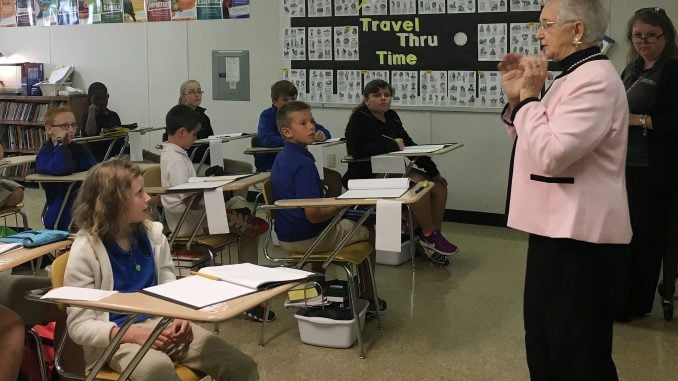
SALISBURY Rep. Virginia Foxx (R-N.C.) was named the new chairwoman of the House Committee on Education and the Workforce in the 115th Congress on Friday.”The committee will continue to work towards fostering the best opportunities for students to learn, workers to succeed and employers to grow,” said Foxx. “At all times, we will strive in our service to hold government institutions to the highest standards of accountability and transparency, with a constant eye towards eliminating waste and inefficiency.”Our creative, ambitious pursuit of good policy will be guided by the Constitution with solutions centered on securing and protecting access to high quality education and safe and productive workplaces for all Americans.”Foxx won re-election to Congress in November for a seventh term representing North Carolina’s 5th District. While many regard Foxx as “Congresswoman,” she is also Dr. Foxx, receiving her doctorate in curriculum and teaching/higher education from UNC Greensboro. Prior to Capitol Hill and even state Senate, Foxx worked as a sociology professor at Appalachian State and was later president at Maryland Community College.Just two weeks before the election, she was in Salisbury touring North Hills Christian School and speaking to students, along with members of Parents for Educational Freedom in North Carolina (PEFNC). Both Foxx and PEFNC are advocates for limited federal involvement and parental choice in education.On the outside, North Hills appears like any other Christian school, yet they’re one of many nonpublic schools in North Carolina that participate in the Opportunity Scholarship Program.”It’s been a huge blessing,” said Ekima Whisonant, whose fourth-grade son has been an opportunity scholar at North Hills since second grade. Whisonant has seen a drastic improvement in her son’s grades and attitude since joining the program.The program caters to low-income families as well as children with learning and physical disabilities. From Christian to Montessori, nonpublic schools across the state accept opportunity scholars. North Hills executive director Maria Lowder said the application and interview process are the same for opportunity scholars as for other families. If approved, the family also makes a monetary contribution or agreement. Out of 300 students at North Hills, 18 are opportunity scholars.PEFNC president Darrell Allison has personal experience working with White House Officials and congressional leaders. Allison focuses on how accomplishments are reached as opposed to sole achievements, as well as informing parents of their options such asl Opportunity Scholars. Under his guidance, PEFNC is now leading as North Carolina’s parental school organization with a membership base of 60,000.During her visit to North Hills, Foxx told students their freedoms are no good unless exercised.”You have the authority, not the federal government,” Fox told them regarding their education.Foxx also visited Two Rivers Community School in Boone. Two Rivers, a tuition-free K-8 public charter school, has been recognized as an Honor of Excellence by North Carolina with 2015-2016 EOG math, science and reading tests performing above Watauga County and N.C. public schools.On average, charter schools receive 75 cents to the dollar that regular public schools receive. In February, Two Rivers raised $9,000 for school operations and out-of-class opportunities for students.”It was a pleasure to spend the day with Rep. Foxx touring schools of choice in her District,” Allison said. “As a strong supporter of parental school choice, we look forward to her continued leadership on this issue, knowing that she believes, like we do, that every child in our state should have access to the school of their choosing regardless of their ZIP code or financial status.”Foxx said she will continue to focus on education, particularly the bipartisan K-12 act recently passed by Congress.”Students are best served when teachers, parents and administrators are the driving force behind improving education,” she said. “The Every Student Succeeds Act does just that by reducing the federal footprint in the nation’s classrooms and restoring control to the people who know their students best.”



